Originally published at: From Lviv to Taupo: a Ukrainian Athlete’s Journey to Her First 70.3 World Championship - Slowtwitch News
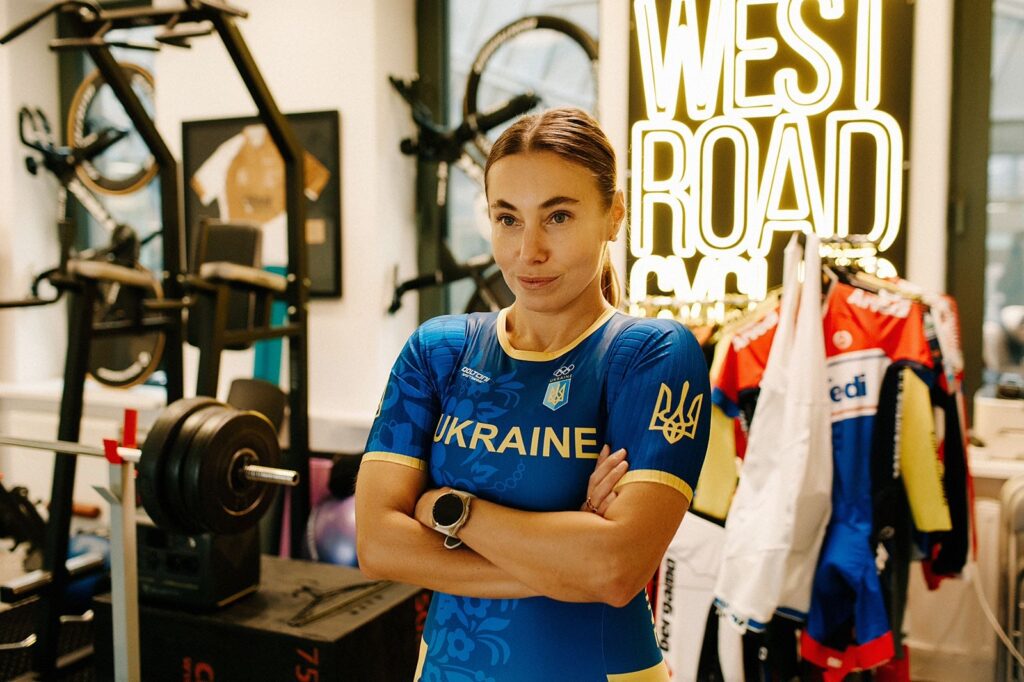
By David Gutnick
On Friday night, Olena Moroz went through her final preparation list:
*Yellow and Blue tri suit: check.
*Wetsuit and goggles: check.
*Cervelo R5 tuned up and racked: check.
*Saucony running shoes: check.
*Maurten gel nutrition ready for the bike and run: check.
She chatted with her 20-year-old daughter Dariya, who is in Taupō to help mom deal with her pre-race jitters nerves and cheer her on.
This was Olena’s first time qualifying for a 70.3 World Championship and, having carted her gear halfway around the world to race in Taupō, she promised herself that she was going to do everything possible to do her very best, to follow her coach’s advice, to soak up the peace and natural beauty of New Zealand, and bring whatever she learned back home.
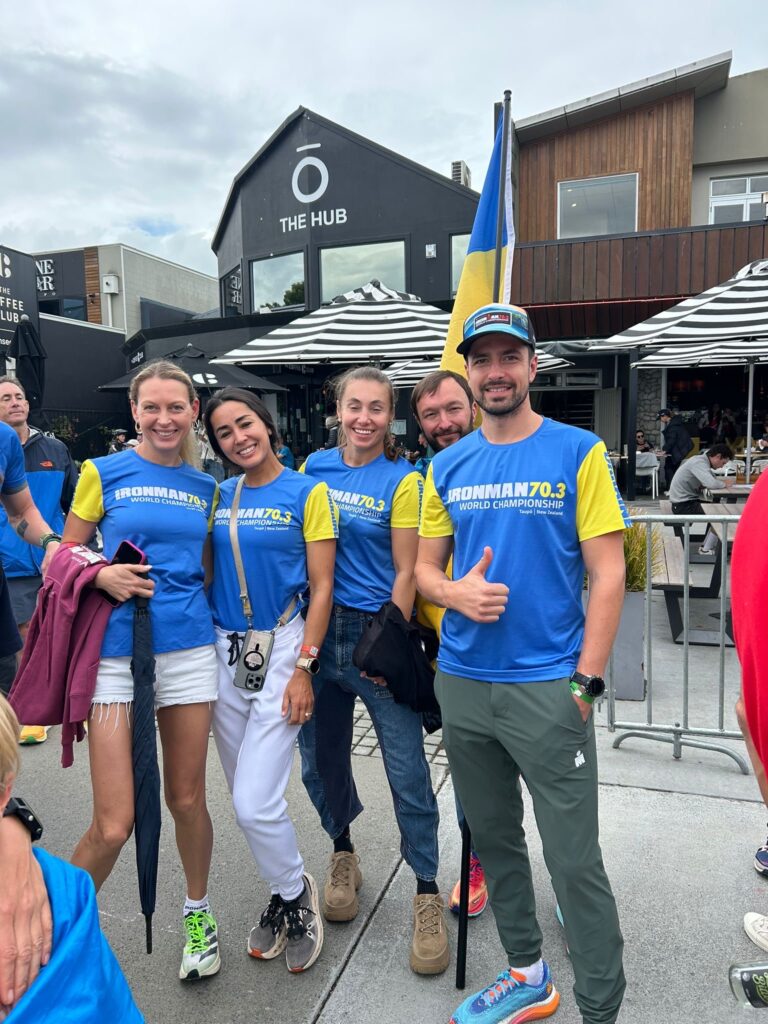
She started getting ready for bed, she needed to be rested for her race
Then her phone binged: a message from her 15-year-old son Sergio.
Big trouble back home.
Russian missiles had blown up six electrical power generating plants in their city of Lviv and more across Ukraine. Olena scanned the news on her phone. She found out Russia had launched 93 more missiles targeting Ukraine’s power supply.
Since Russia’s invasion of Ukraine on Feb. 24, 2022, hundreds of Russian missiles have targeted homes, schools, hospitals, medical clinics, railway lines and an army base in Lviv. More than 75 children and adults have been killed, and many more have been injured. Hundreds of thousands of Ukrainian and Russian soldiers are dead, along with Ukrainian civilians, and Russia’s war rages on with no end in sight.
“When the war started, I didn’t know if I should keep training for triathlons,” says Olena. “So, I asked some of my friends who were soldiers, ‘Should I stop?’”
Olena runs an infertility clinic in Lviv, and there was no way she was going to close the clinic despite the ever-present danger.
“We just do our best to keep going,” she says, “to keep being as normal as possible.”
That’s exactly what her soldier friends told her about her triathlon training.
“They all told me the same thing,” says Olena. “Keep your life as normal as possible. Don’t let Putin control us: do everything you can to keep the life you have.”
And so that is what Olena did. She pedalled her Cervelo past buildings blown to smithereens, swam lengths in swimming pools while air raid sirens wailed in the distance, and ran through parks scarred by explosions.
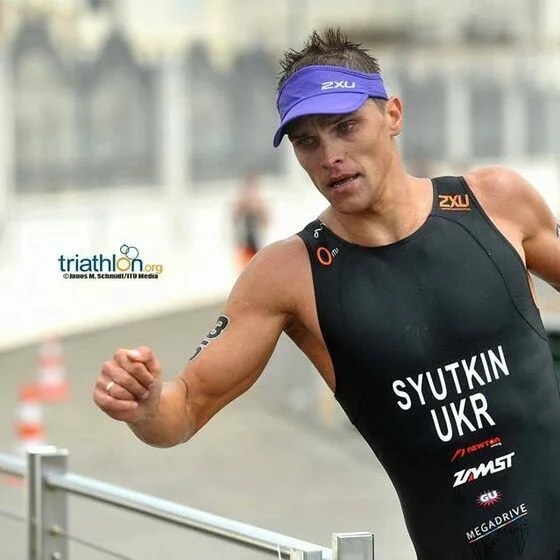
Photo: World Triathlon
Olena got training plans from her coach, Alexey Syutkin, a former World Triathlon professional and member of Ukraine’s Olympic triathlon team. Every time Syutkin’s athletes open his webpage http://syutkin.com.ua/en#training, they see a picture of him racing and another of him in soldier’s camouflage, holding a rifle.
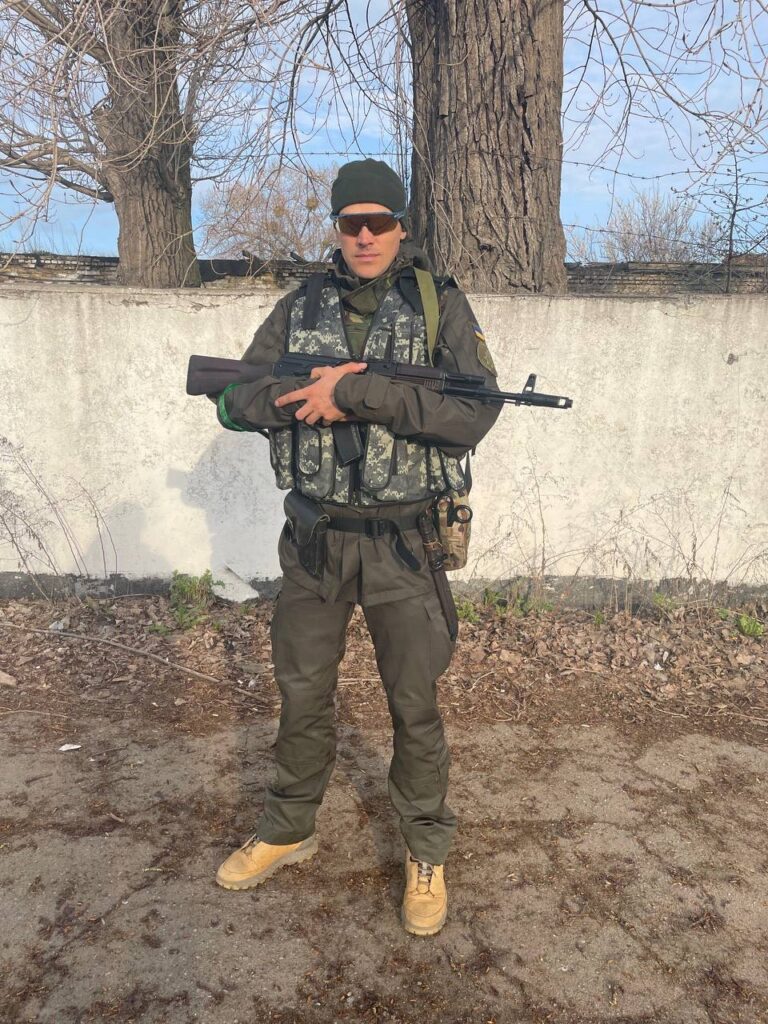
Syutkin was at a triathlon training camp in Spain when Russia invaded. He returned to Ukraine and joined the army.
“You should mix work with pleasure, do sports and support the legend of the Ukrainian triathlon,” he writes. “In that way you also contribute to the army of Ukraine.”
So that is exactly what Olena did.
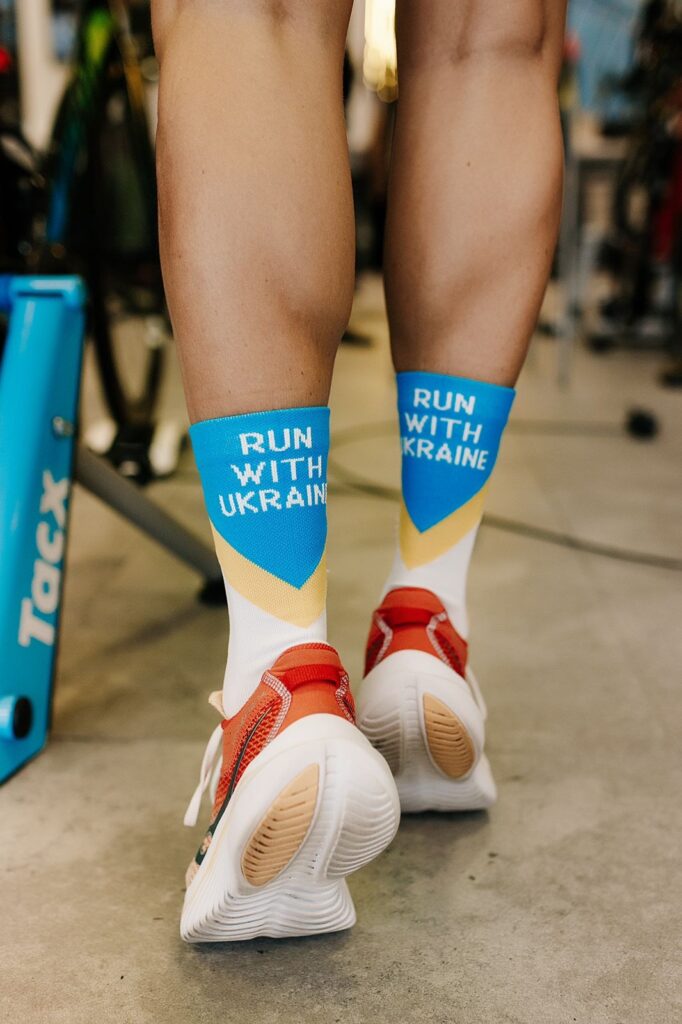
Over the past year, she competed in four different races in four different countries.
She qualified for this World Championship at IRONMAN 70.3 Luxembourg.
Olena also flew to Africa to race Ironman 70.3 Rwanda, where she came third in her age group. She loved the entire experience. She says the Rubavu district community members welcomed the athletes with open arms and wants to go back.
Here in New Zealand, Māori in traditional clothing sang and performed a Haka before leading a parade of more than 6,000 athletes from 119 countries along the Taupo waterfront.
As Olena and her five Ukrainian teammates waved their flag, fellow triathletes and spectators kept coming up to them and wishing them luck, both in the race and in their daily struggles back home.
“People understand what we are going through,” Olena says. “They want to help any way they can.”
For instance, volunteers from Britain regularly drive truckloads of donated medical supplies into Ukraine, knowing that they are taking huge risks. It must be done because helping Ukrainians was “just the right thing to do,” Olena says.
Olena is a member of Rotary International, a service organization that she says has been instrumental in helping Ukrainians better survive the war. Whenever she’s not working at her fertility clinic or training, she’s coordinating their relief efforts and doing social media for her home club called Ukrainian Unity.
Officials from DTEK, Ukraine’s largest private power supplier, said more than 3.5 million households had been left without heat. It was -1 C (30.2 Fahrenheit) in Lviv, and temperatures would be dropping in the weeks to come.
Olena headed to T1 to check her bike, slipped into her wetsuit and made her way to the shore of Lake Taupō, her cap with her bib number 2578 pulled on tight.
She was surrounded by 285 other women in her 45 to 49 age group.
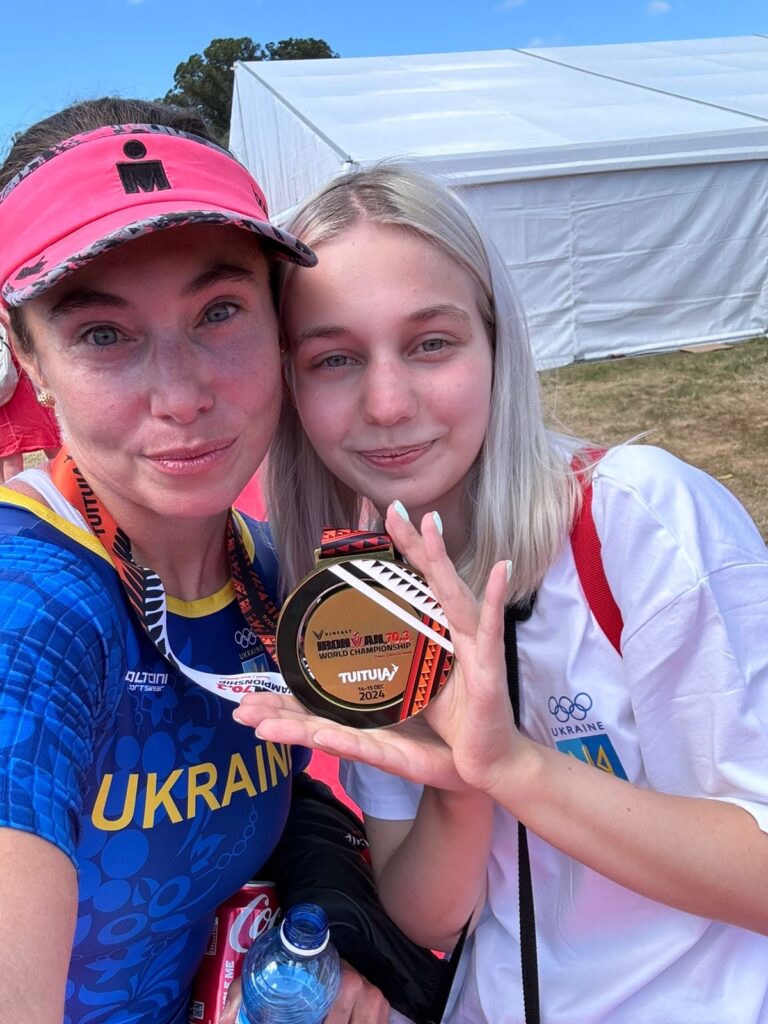
Seventeen thousand kilometres away, Russian President Vladimir Putin was doing his best to break the spirit of Ukrainians, vowing to smash and plunder and kill as many as it takes until they give in to his demands.
No way was Olena going to let that happen.
At 8:43:14 Olena waded into the water and started to swim.
Ed. Note: Olena would finish the race in 7:34:13.
David Gutnick is an award winner journalist who has retired from CBC Radio in Canada.